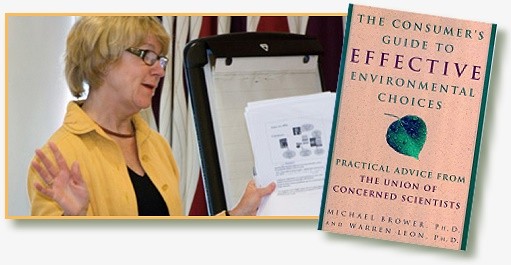| Save Our Planet | |
| Sweden Promotes Environmentally Smart Food Choices |
The National Food Administration and the Environmental Protection Agency of Sweden jointly drafted guidelines on diet choices for health and the environment, called “Environmentally Effective Food Choices.” The guidelines were sent to other EU nations for feedback, hoping that the recommendations will inspire authorities in those countries to support this powerful strategy to reduce greenhouse gas emissions. Sweden has become the first country to establish new food policies that consider the environmental aspects of human food choices along with individual health matters.

The guidelines state, “Meat – beef, lamb, pork and chicken – is the foodstuff with the greatest impact on the environment.... To eat less meat and to choose what you eat with care is therefore the most effective environmental choice you can make. From a health perspective, there is also no reason to eat as much meat as we do today.” It recommends replacing one or a few meals of beef, lamb, pork or chicken with vegetarian meals each week, or to reduce meat portion sizes. The document further lists various facts on the environmental impact of different foods. For example, 1kg of beef is responsible for up to 15-25kg of greenhouse gases!
Inger Andersson, the Director General of the National Food Administration, says, “Consumers make important environmental choices when they are food-shopping, so they need a sound basis on which to make their decisions. Food production accounts for roughly a quarter of Swedish consumers’ climate-impacting emissions, and also contributes to other harmful environmental effects, for example through the use of pesticides”.
We applaud Sweden’s authorities
for their wise actions and hope other countries will follow their good
example to make our planet more sustainable as well as a beautiful and
harmonious place to live in. ![]()
http://www.foodnavigator.com/Legislation/Sweden-seeks-feedback-on-enviro-health-food-guidelines
|
||||||